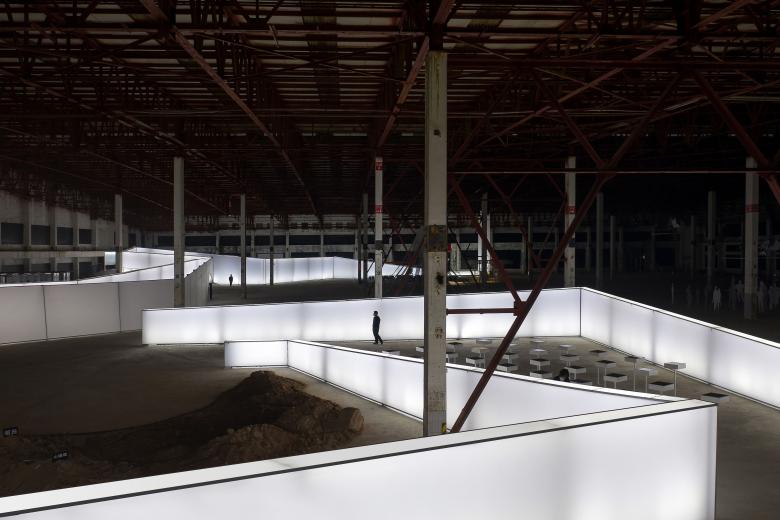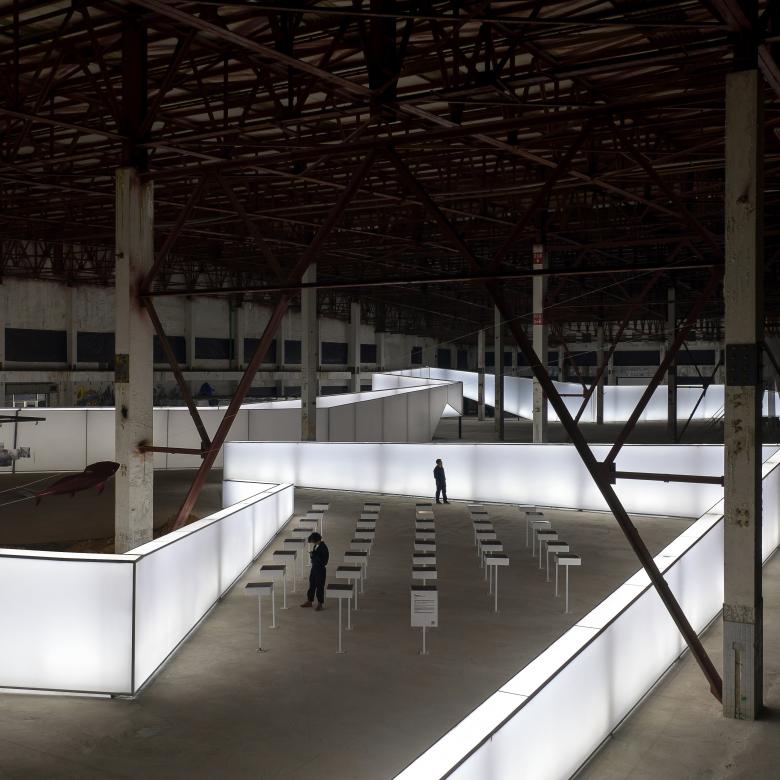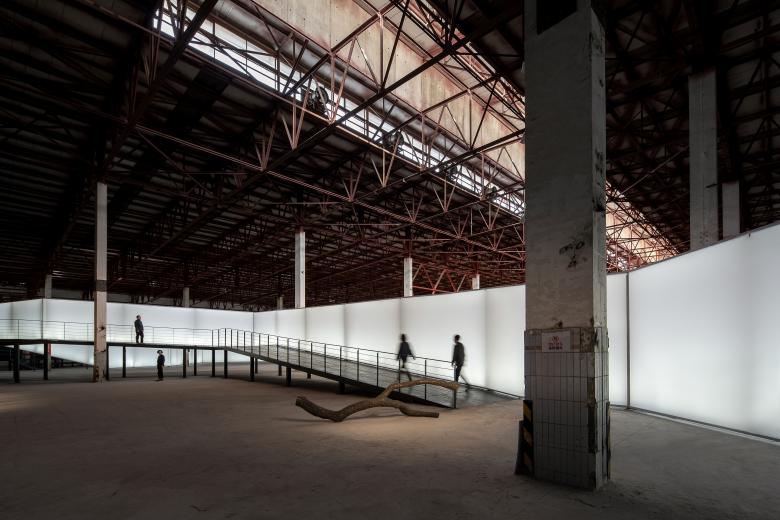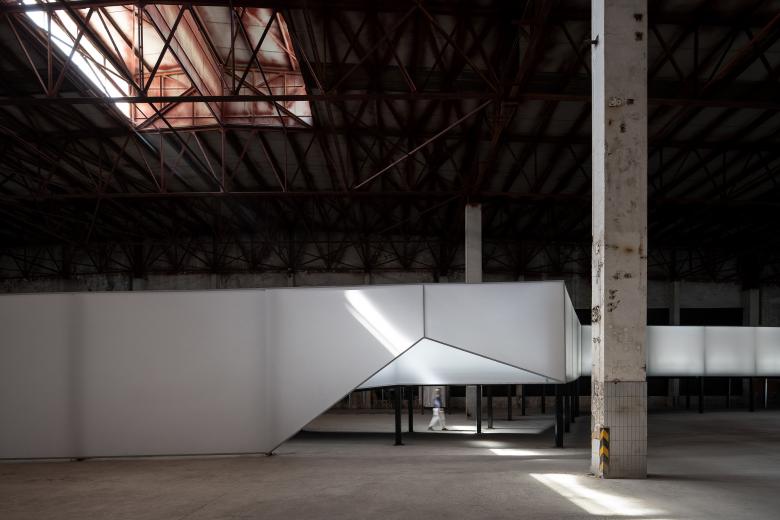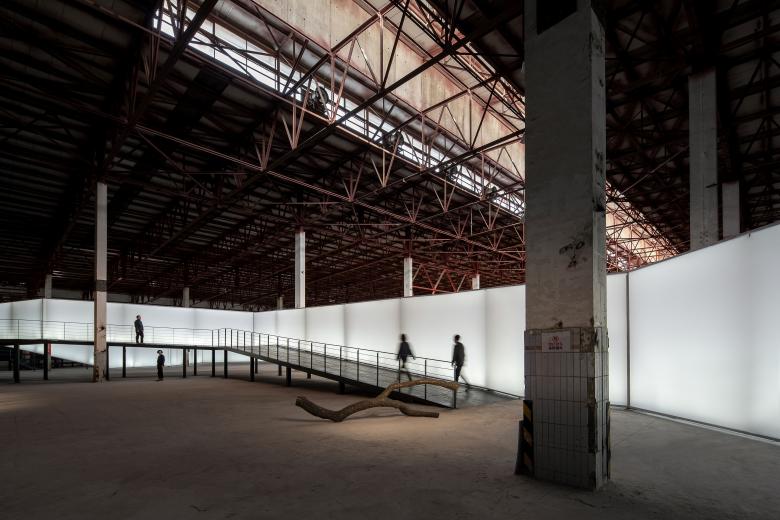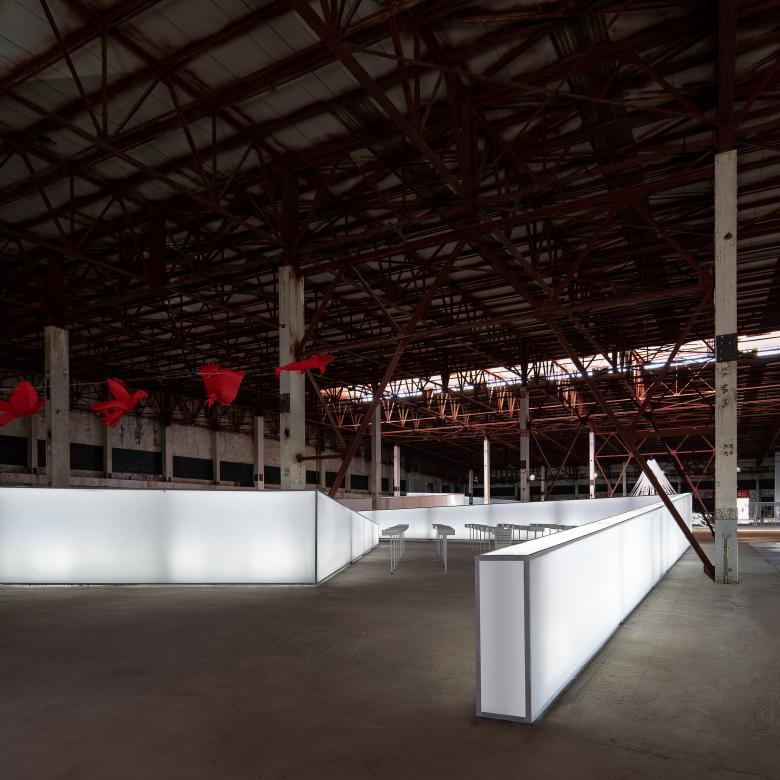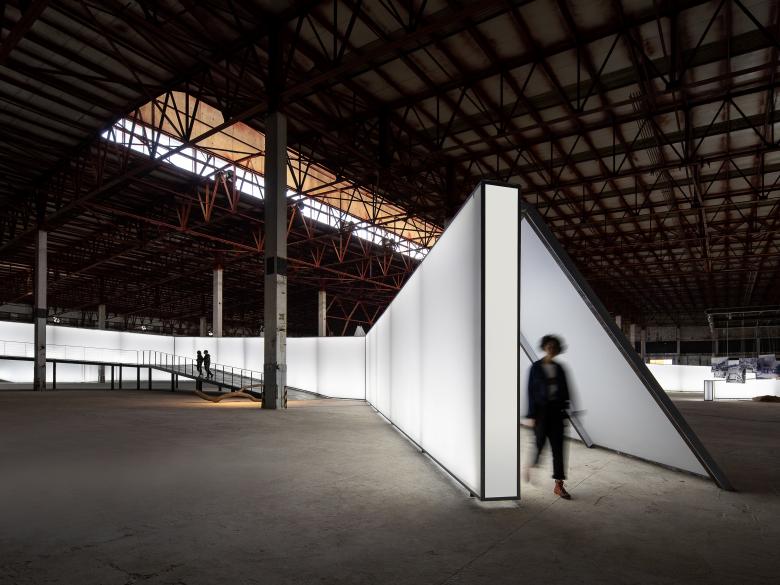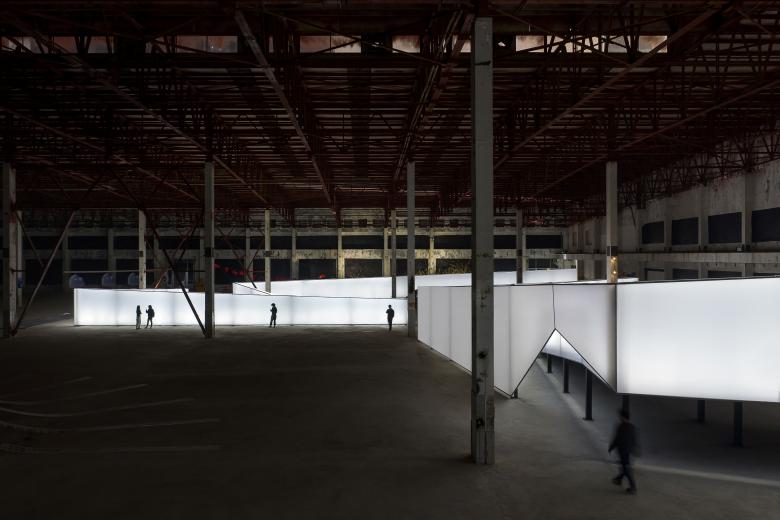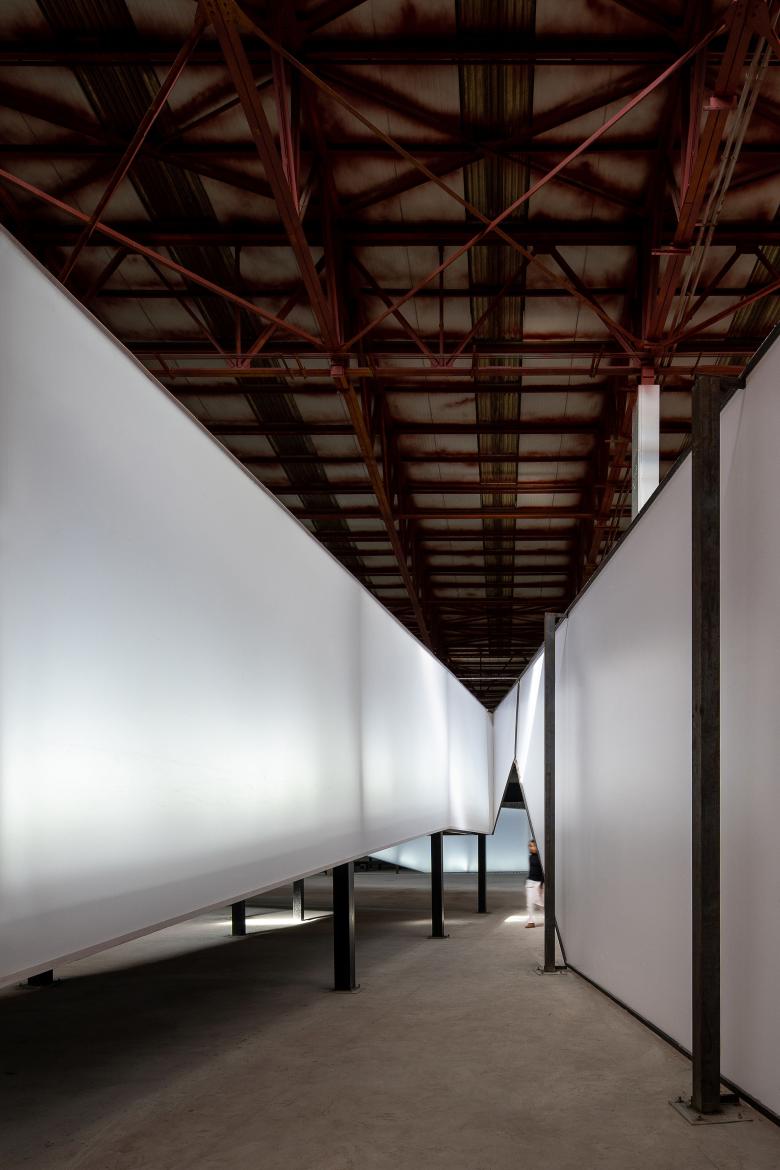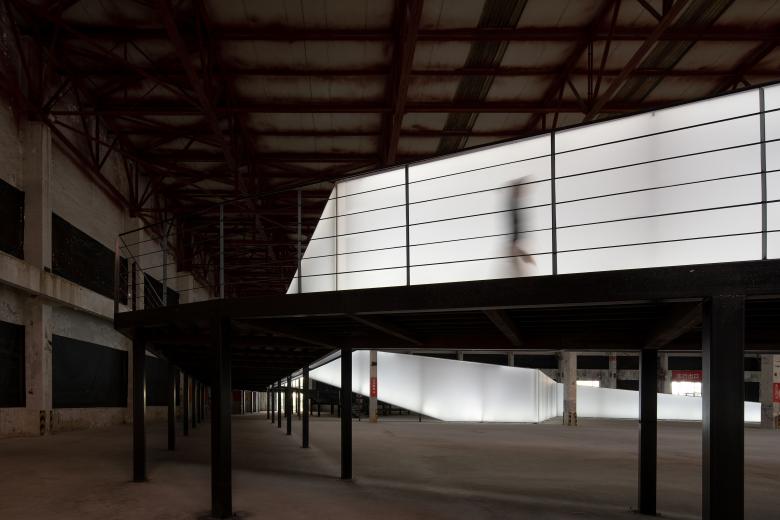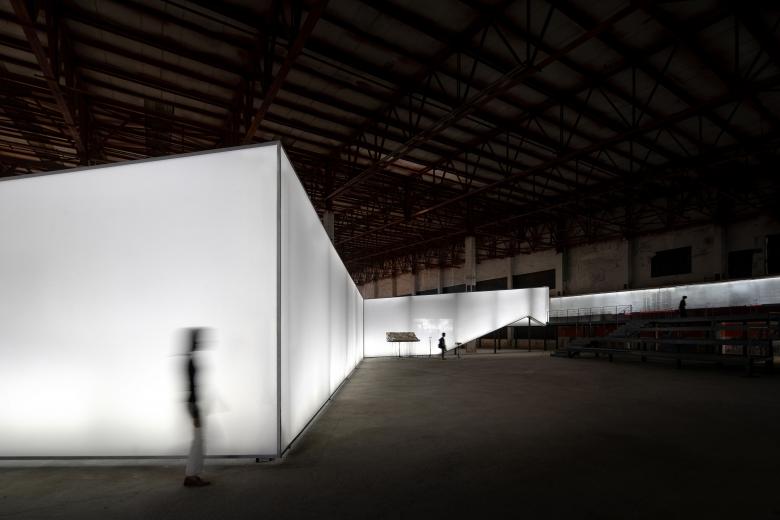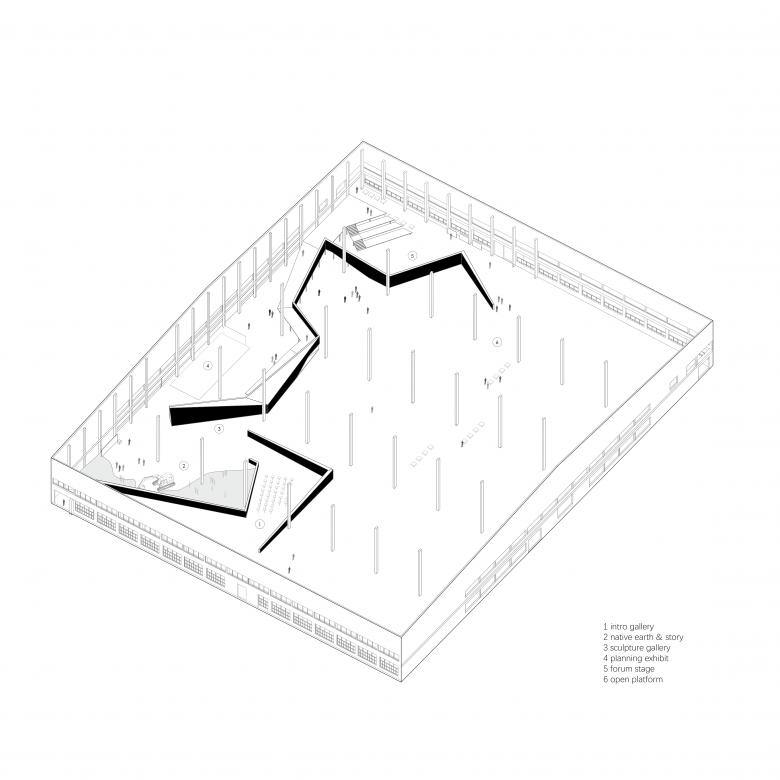UABB Longgang Exhibition Hall
Shenzhen, China
- Architects
- Atelier XI
- Location
- Shenzhen, China
- Year
- 2019
- Lead Architect 主持建筑师
- Chen Xi
- Design Team 设计团队
- Tiandi, Liang Jiaxin, Xu Zhiwei (Intern), Lin Ziya (Intern)
- Lighting Consultant 灯光顾问
- Lighting Formula
- Engineering Consultant 结构顾问
- Tan Zhuoping
- Size
- 5000m2
Folded Time-Light-Line
Three months before the exhibition opening, the architects received an urgent commission from the curators to transform the abandoned manufactory into an exhibition venue. And the subject of the exhibition is said to outline a chronological narrative on the urban development of the local area where the factory locates.
After visiting the site, the architects are impressed by the vast scale as well as the rigid grid and truss system demonstrating the history behind this factory. Therefore, they suggest keeping the original industrial traces as much as possible while applying a minimum amount of intervention which takes form as a light-filled structure in contrast with the existing heavy framework. The 250-meters long “Folded Time-Light-Line” is proposed as continuous membrane walls filled with light to reshape the space to have a linear exhibition sequence within a limited construction time (one month). The architects ponder:
“Could the fleeting light lead us into the maze of time in the past?
Could we trace the changes in history by slightly folding the space?
By folding, the light and time conceptually initiate a dialogue reflecting the subject narrative, and at the same time, physically reinterpret this vast abandoned area. The rigidly ordered industrial space thus experiences a subtle glitch by the folded line of light which disturbs the passing of time and arouses the dormant relics of history.
Time - Light - Line is made through folding. On one hand, it jumps out from the ruins of time and occupies the foreground of the space. On the other hand, it acts as a backdrop on which all the fragmented pieces of time unfold: the pristine soil in the first place, the mechanical parts from the Industrial Age, the illusions of the present digital world, or the myths of the future.”
Around twenty research and art works from universities, institutes, artists, and architects are shown in the rehabilitated venue where the folded light wall forms a series of spaces hosting these works in a linear (chronological) sequence.
The main challenges of the project come from limited construction time, restrained budget, and big scale of the space. To respond to these factors, the architects deliberately choose the affordable membrane material which is capable of spanning over 50-meters. With such material, the 250-meters long wall finished its construction within 20 days, and was ready for visitors prior to the exhibition opening day.
The translucent membrane allows for seamless installation of single-sided, double-sided, and double-curved light walls. The translucency of the material and the lighting environment also encourage visitors to interact with the installation by adjusting their physical distances to the membrane for engaging light effects.
In recent years, many manufacture plants in Shenzhen and surrounding areas have moved to regions with lower land and labor cost, resulting in a large number of empty factory halls left behind. Through this intervention project, the architects seek to present the general public with the opportunity to transform these post-industrial containers to cultural and art incubators.
Related Projects
Magazine
-
Winners of the 5th Simon Architecture Prize
1 week ago
-
2024, The Year in …
2 weeks ago
-
Raising the (White) Bar
2 weeks ago
-
Architects Building Laws
2 weeks ago
